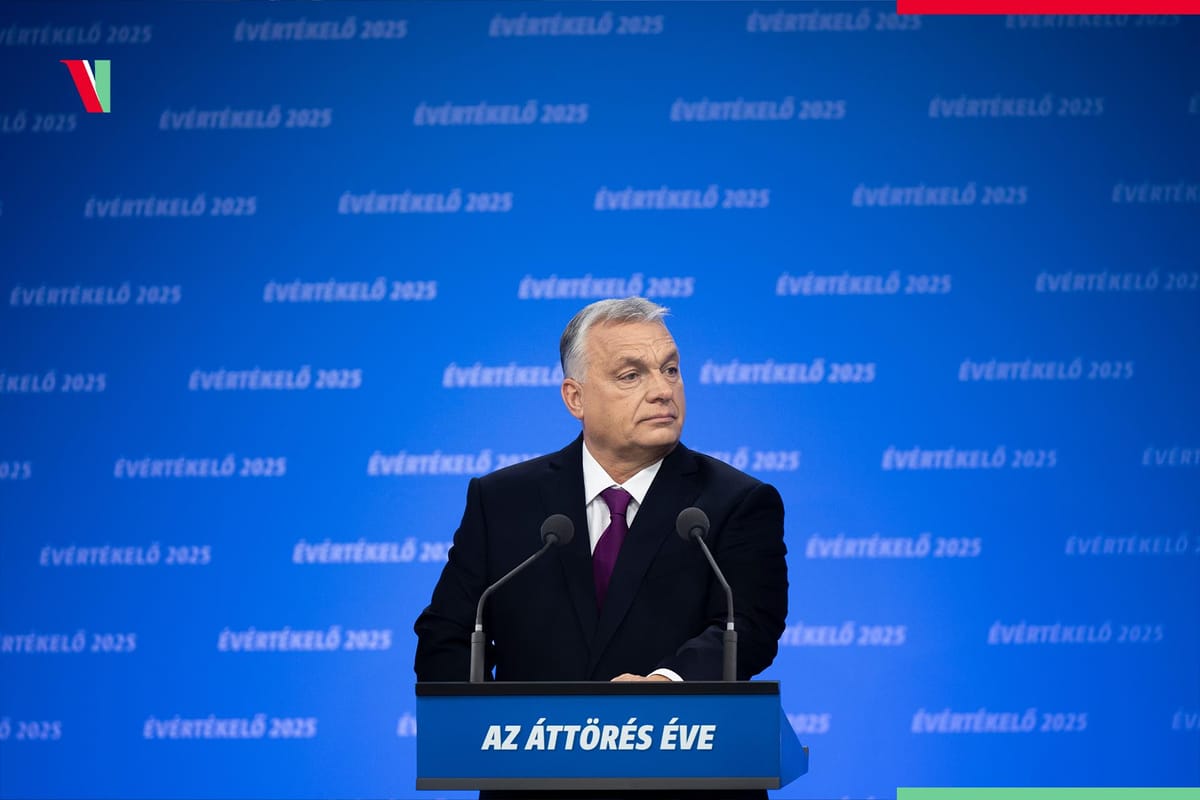
Ukraine will never join EU - Orban
Hungarian Prime Minister Viktor Orban described 2025 as a “breakthrough year” when he set out his government’s agenda for the coming year in Budapest on Saturday, 22 February. In his annual “state of the nation” address, Orban referred to the returning US President Donald Trump as “our comrade in arms” while condemning the “double standards” of EU leaders.
Orban refers to ‘territory called Ukraine‘
On Ukraine, the Russia-proximate premier said the “territory called Ukraine”, which he characterised as a buffer state between NATO and Russia, should come under NATO supervision. “Quite why the European and US liberals thought that the Russians would idly observe this remains a mystery,” he added.
“Ukraine – or what is left of it – will again become a buffer zone. It will not be a NATO member, and as to whether it will become an EU member, that is for the Hungarians to decide,” he said. Against Hungary and the Hungarian people, Ukraine will never become an EU member, Orban said, claiming that its accession to the EU would destroy Hungarian farmers and the entire Hungarian economy.
Crackdown on NGOs ahead
Orban claimed that the current Trump administration in the US has exposed a vast, corrupt network that channels funds to sway political influence across the West. “The Americans have laid bare the skeletons in their closet,” he claimed, alleging that billions of dollars from the US budget have been diverted to “pseudo-NGOs and used to buy off journalists, judges, prosecutors, politicians, foundations and bureaucrats, fueling a mechanism that upholds a liberal media dictatorship and political oppression, “even here in Hungary”.
Orban vowed to propose a constitutional amendment explicitly defining gender as male or female, before advising LGBT activists to abandon preparations for the annual Gay Pride march this year. He told the organiser not to bother with this year’s march, calling it “a waste of time and money”, regardless of what “Commander Weber and his Hungarian agents” he said, referring to EU conservative party bloc the European People’s Party President Manfred Weber.
PM predicts five areas of dispute with Brussels
Orban’s speech came amid ongoing tensions between his government and EU institutions over judicial reforms and migration policy. He added that 2025 will see major battles between Hungary and the EU over migration, child protection, the pension system, household energy prices, and Ukraine.
Orban also declared that Hungary will reject the EU Pact on Migration and Asylum, expecting backing from countries including the Netherlands, Poland and Italy. He reiterated that Hungary will not accept any migration deal that directs migrants into the country, continuing his longstanding criticism of EU policies, which he argues undermine Hungary’s national sovereignty.
Mothers to go tax free for life
Citing steep price increases on basic food items in Hungary, Orban pledged to take decisive action to control food inflation. He said National Economy Minister Marton Nagy has been tasked with negotiating with supermarket chains. Should these talks fail, the government is prepared to impose fixed prices and cap trader profits, especially to protect pensioners and other vulnerable groups.
Orban also announced that the government will introduce lifetime income tax exemptions for mothers in two phases. Mothers of three children will see the benefit starting in October 2025, while a similar exemption for mothers of two will be rolled out gradually from January 2026.
In addition, Orban pledged new income tax exemptions on child benefits and childcare allowances for Hungarian families. His speech also touched on proposals to support the rights of hamlets to safeguard Hungarian traditions and economic independence.
Furthermore, he promised to defend Hungary’s current pension system, accusing the EU of pushing reforms solely to funnel funds to large multinational corporations. He also vowed to oppose EU tariff policies that he argues could deter foreign investment in Hungarian factories and imperil local jobs. Orban also announced plans to support the industrial sector by creating 100 new factories.
Challenging year ahead, election next April
Concluding, Orban urged Hungarians to unite and brace for a challenging year ahead, especially as the country moves toward the 2026 elections. He argued that the proposed measures are necessary for Hungary to overcome its current challenges and to assert its national identity in an increasingly complex international landscape.
Hungary’s next parliamentary elections are scheduled for April 2026. Orban’s Fidesz party is currently trailing in the polls behind the nascent Tisza party, led by Fidesz insider turned rival Peter Magyar.





